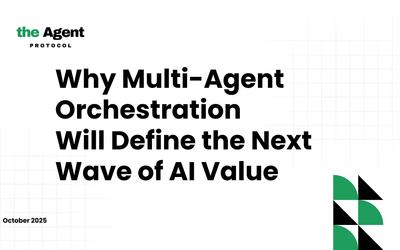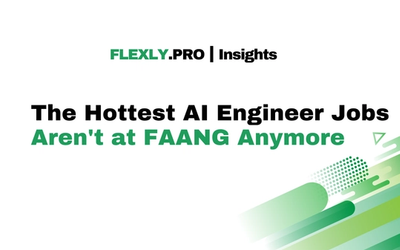Alex Baker
Data Engineer Intern
“As a recent graduate, FLEXLY.PRO's AI matching surfaced internships I would have missed. I started getting interviews within a few weeks and accepted an offer shortly after.”
Trusted by top talent and fast-growing teams worldwide
Discover 7 open software engineering positions
FLEXLY.PRO connecting AI talent with the right opportunities.
AlgoUniversity
Theneo
JustPaid.ai
Soraban
Soraban
Lago
Showing 1 to 7 of 7 jobs(page 1 of 1)
Real results with AI job matching—faster offers for candidates, higher quality pipelines for hiring teams.
Alex Baker
Data Engineer Intern
“As a recent graduate, FLEXLY.PRO's AI matching surfaced internships I would have missed. I started getting interviews within a few weeks and accepted an offer shortly after.”
Elena Markov
Senior Data Scientist
“The AI Job Match fit my profile perfectly—relevant roles only, no noise. I moved straight to final rounds for two top positions.”
David Chen
AI Engineer
“Resume Fit Analyzer was a game‑changer. I tailored my resume to each post and saw a huge uptick in callbacks.”
Priya Narayanan
Machine Learning Intern
“Saved jobs + tracker kept my search organized. FLEXLY.PRO matched me to an ML internship that aligned with my skills and goals.”
S. Patel
Senior Technical Recruiter
“After posting on FLEXLY.PRO we received fewer but far stronger applications. Candidate quality and skill alignment were excellent.”
J. Rivera
Head of Engineering
“The first week brought short‑listed, interview‑ready ML engineers. Best signal‑to‑noise we’ve seen from any job board.”
A groundbreaking study on anti-money laundering in Mexico demonstrates that AI-powered predictive models can identify 92% of suspicious transactions with 95% precision by analyzing financial institution data. The research combined traditional machine learning with deep learning techniques to detect behavioral anomalies and money laundering patterns in real-time. For AI professionals and fintech startups, this represents a major advancement in automated compliance that reduces false positives while improving detection accuracy. The findings show how AI can transform financial security operations, creating new opportunities for developers specializing in regulatory technology and fraud detection systems.
This technical guide introduces Condition variables as a sophisticated solution for complex task coordination in asynchronous programming, addressing limitations of basic Event patterns. The article demonstrates how Conditions prevent race conditions and spurious wakeups when managing shared resources with capacity limits, using Python asyncio examples. For AI developers building distributed systems or concurrent processing pipelines, mastering Conditions is essential for creating robust, efficient applications that handle multiple simultaneous operations. This knowledge is particularly valuable for startups scaling their infrastructure, as proper task coordination directly impacts system reliability and performance under load.
This technical deep dive explains how BIP-39 standardizes the generation of secure seed phrases for web3 wallets using cryptographic entropy and SHA-256 hashing. The process converts 128-bit random numbers into 12 or 24-word mnemonics through sophisticated mathematical operations, creating astronomically secure private keys. For AI professionals and startups in the blockchain space, understanding these cryptographic foundations is crucial for building secure decentralized applications and wallet infrastructure. The article demonstrates how this technology enables reliable account recovery while maintaining robust security against brute force attacks.
A 14-year-old ethical hacker shares their innovative approach to building offline cybersecurity simulation tools for educational purposes. Their projects including TickFlock (social behavior simulation), photo_trace_project (metadata awareness), and cast_alert.py (device control testing) are designed to teach digital forensics and system behavior in safe, controlled environments. For AI professionals and startups, this demonstrates how modular, offline-first simulation tools can provide valuable training platforms without cloud dependencies or security risks. The philosophy emphasizes simulation over exploitation, creating family-safe tools that empower future cybersecurity defenders through hands-on learning experiences.
This comprehensive guide bridges theoretical understanding of stack data structures with practical LeetCode problem-solving, covering the essential LIFO (Last In, First Out) principle. The article provides real-world analogies like browser history and undo functionality, along with Python implementations and time complexity analysis for core operations. For AI job seekers and developers, mastering stack fundamentals is critical for technical interviews and solving algorithmic challenges involving balanced expressions, function call management, and recursive problems. The guide demonstrates how stack-based patterns form the foundation for more complex data structures and algorithms used in AI system design and optimization.
OpenAI CEO Sam Altman faced intense questioning about the company's financial sustainability during a podcast interview, revealing tensions over its massive $1.4 trillion spending commitments despite reported losses of $11.5 billion last quarter. Altman's defensive response, telling an investor 'Enough' and offering to find buyers for their shares, highlights growing investor concerns about an AI bubble and OpenAI's path to profitability. For AI professionals and startups, this underscores the high-stakes pressure even top AI companies face to balance ambitious R&D with revenue generation, signaling that the industry's growth may be outpacing its economic foundations.
Academic researchers are evaluating Elon Musk's AI-powered encyclopedia project Grok, raising questions about its reliability and trustworthiness as an information source. This scrutiny highlights ongoing challenges in ensuring AI-generated content meets accuracy and credibility standards, especially for educational or reference applications. For AI job seekers and professionals, it emphasizes the growing need for roles focused on AI ethics, validation, and content quality assurance in an era where AI tools are increasingly used for knowledge dissemination.
AMD's new Radeon AI PRO R9700 graphics card is positioning itself as a strong contender in the workstation market, delivering competitive performance and value for AI and compute-intensive tasks. This development signals increased competition in the hardware space, which could drive down costs and expand accessibility for AI development and research. For startups and AI professionals, more affordable high-performance GPU options mean lower barriers to entry for training models and running complex simulations, potentially accelerating innovation across the industry.
A new manifesto proposes 'document-driven development' as a methodology where humans and AI collaborate through plain language documentation to create better code and maintain project understanding. This approach aims to address the challenge of gatekeeping in software development by creating a transparent ledger of human-AI interactions. For AI professionals and developers, this represents an emerging paradigm that could redefine software engineering roles, emphasizing documentation skills and AI collaboration over traditional coding expertise alone.
Elon Musk has proposed leveraging idle Tesla vehicles to create a massive distributed computing network capable of providing 100 gigawatts of power for AI training and inference. This innovative approach could potentially address the growing compute shortage in AI development by utilizing existing hardware resources that would otherwise sit unused. For AI startups and researchers, this represents a potential paradigm shift in how compute resources are accessed, potentially lowering costs and democratizing access to massive computational power for AI projects.
A proposed class action lawsuit against Spotify alleges widespread streaming fraud, with artists claiming that artificial streaming patterns are distorting royalty payments and harming legitimate creators. The case highlights how automated systems and potentially AI-driven manipulation are undermining the digital entertainment economy. For AI professionals, this underscores the growing importance of developing detection systems for synthetic content and fraudulent activity, creating new opportunities in AI security and content validation technologies.
AMD has clarified that it will continue supporting older Radeon GPUs after a confusing driver release suggested potential discontinuation, noting that reusing old silicon in new products makes ongoing support essential. This reassurance is crucial for AI developers and researchers who rely on older hardware for cost-effective model training and experimentation. The situation highlights the hardware sustainability challenges in the rapidly evolving AI ecosystem, where maintaining backward compatibility can conflict with pushing new technological boundaries.
Get answers to common questions about FLEXLY.PRO's AI-powered career and hiring platform
FLEXLY.PRO uses semantic search and skills inference to compare your resume/profile against live ${categoryName.toLowerCase()} job descriptions—finding real-fit matches across seniority, tech stack, and remote/on-site preferences.
Yes. Paste a job description and our AI highlights gaps, missing keywords, and recommended improvements so your resume ranks higher for ${categoryName.toLowerCase()} roles.
Absolutely. Add roles, track stages (Applied, Interview, Offer), store notes, and manage timelines—all in one place.
You can bookmark roles to revisit later and create targeted alerts (e.g., Remote ${categoryName}, Senior, Contract) so you never miss new postings.
Yes—use the Remote toggle to view remote roles, or turn it off to see all jobs. Popular searches include Remote Machine Learning, Data Science, MLOps, NLP, and Computer Vision positions.
New users get free trial access to explore AI matching, resume fit analysis, saved jobs, and personalized recommendations.
Companies can publish roles to reach thousands of AI professionals. We promote listings to relevant talent pools across ML Engineering, Data Engineering, NLP, CV, and Product AI.
Strong fundamentals plus in-demand tools (e.g., Python/TypeScript, SQL, TensorFlow/PyTorch, Spark, Kubernetes, AWS/GCP, ML Ops) boost match scores. Our analyzer suggests targeted keywords for each role.
Yes. Verified students get 50% off our paid services—submit a valid student ID for quick verification and discounted access.
Stay ahead with expert tips on AI careers, remote work strategies, and professional growth

Multi-Agent Orchestration is the future of AI value. Discover the engineering shift from model size to trust, auditability, and integration for enterprise-grade, defensible AI.

AI engineers are leaving Big Tech maintenance for startups! 🛠️ New data shows where to find roles building cutting-edge AI systems from scratch and how to earn the specialization premium.

Mid-career AI engineers often earn more at late-stage startups than FAANG. Learn how to evaluate equity, negotiate compensation, and run the real math on 2025 offers.